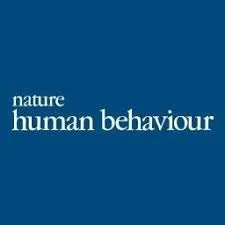Select Academic Publications
Religious change preceded economic change in the 20th century
The decline in the everyday importance of religion with economic development is a well-known correlation, but which phenomenon comes first? We find evidence that a rise in secularization generally has preceded economic growth over the past century.
Our multilevel, time-lagged regressions also indicate that tolerance for individual rights predicted 20th century economic growth even better than secularization. These findings hold when we control for education and shared cultural heritage.
The cultural foundations of modern democracies
Recent research shows that stable democracies tend to rest upon two cultural foundations: openness to diversity and civic confidence. Stable democracies emerge in countries where people are open and tolerant towards minority groups and where civic institutions, including government and the media, command the confidence of the people.
Tracking global cultural change during the 20th century paints a complex picture for the future of democracy. A century of increased connectivity between the world’s people has spurred a surge in openness to diversity in almost every country. However, diminishing confidence in civic institutions threatens the stability of political systems.
Users choose to engage with more partisan news than they are exposed to on Google Search
There is widespread concern that folks who consume political news on the internet are being filtered into echo chambers that is causing them to become politically polarized. This study asks if this is true by looking at Google search results, and asking: does Google’s algorithm expose people to partisan and unreliable news content? Or are people simply seeking it out for themselves?
This study shows that Google users did tend to engage with more of this news, but not because there was more of this in their search results. This was true during both the 2016 and 2020 US election cycles. The results indicate that engagement with partisan or unreliable news on Google Search is not driven by Google’s algorithms, but by users’ own choices.
Select General Articles
This is the link between religion and economic development
We have known for decades that secular countries tend to be richer than religious ones. Finding out why involves unpicking a complex knot of cognitive and social factors – an imposing task. So my small research team thought we’d ask a more straightforward question: was it the secular chicken that came first, or the economic egg?
How to use statistics to prepare for the next pandemic
Publicly available statistics about population demographics and culture can help governments prepare for the next pandemic. We have found that by using existing socio-demographic data from early COVID-19 hot spots, where there was a lot of information, officials could have predicted how COVID-19 would spread through society. The next time there is a global health crisis governments can use our techniques to figure out how a disease will likely move beyond hot spots to regions that are not yet affected.
Tricking the Trade
If you take an introduction to adversarial AI, you will likely be presented with a series of cases of neural networks not being quite as clever as many think they are. You’ll see images of cats misidentified as boats or a person with funny glasses being ignored by a facial recognition system. However, these adversarial examples cease being a sideshow curiosity when they align with nefarious intent.





